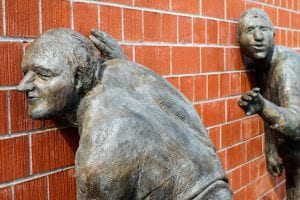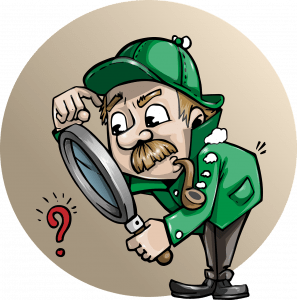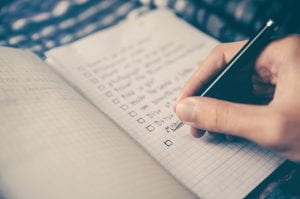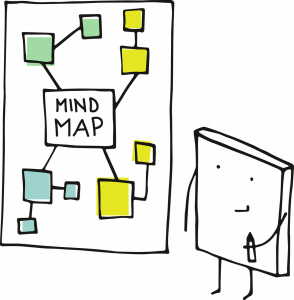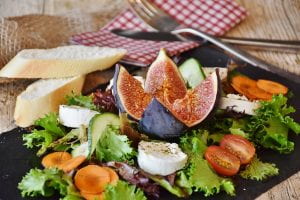
Tell us about your ancestors who had occupations or businesses related to food or beverages. Has it been easy to research this aspect of your family history?
My grandfather Frank Duncan had a food van in the late 1920s and 1930s that he took to football matches, race meetings etc in the area around Cobar. The aforesaid Frank Duncan was a sheep farmer on 48,000 acres near Cobar until an horrific bushfire wiped him out . So he was always connected with food.
I have had a baker and confectioner. But I haven’t done much research on them yet
Hi everyone – yes I have bakers and confectioners in my family tree too @tasteach. The Forfars had a famous bakery at Hove in Sussex and his descendants had one in Newcastle – Wingfields.
My great grandparents were dairy farmers at Seventeen Mile Rocks until the 1930’s. One of my convicts was a ‘pantry boy’ and I had a grocer in Suffolk in the mid 1800’s. I have to admit I haven’t done a great deal of research
My ancestors in Bedfordshire were vegetable growers. Researching their property has given me a huge amount of information about them
My great grandfather was a butcher. His business was in front of their house. His wife had a cake shop at the back of the house.
When I was little Mum and her sister had a delicatessen in Kensington NSW. I used to love the easy access to milkshakes and ice cream cones.
#Food & #FamilyHistory go together like strawberries & cream. Did the ancestors eat rich or poor foods or (even worse) workhouse food? To write about their lives we have to know about the food.
I have a 4xg grandfather who was allegedly a baker, but his son might have been making that up for the marriage register! And my 2x ggrandfather ran a pub in Charleston (West Coast) for a while – obviously found that more lucrative than the gold fields
My aunt was an excellent cook, and I have some of her recipes in my handwritten book. My nephew is a chef. There are some publicans among my family
The great @abbie_weil writing on rare and vintage cookbooks? 🤌🤌🤌🤌🤌🤌🤌🤌🤌🤌🤌🤌https://t.co/ylzdxytE3R via @EaterPhilly
— Christine Jacobson (@internetstine) December 13, 2021
Guess my farming ancestors count too! Grandfather and great grandfathers were stock agents, some good stories about their working life from newspaper reports when they retired.
I have farmers and vegetable growers in my family history in Australia. Most of them struggled to make a go of it but the ones that stuck with it for a few years did very well
My maternal grandfather was a sales rep for Allens sweets and also McNivens Ice Cream. His brother (my great uncle) was a pastrycook/baker. Easy to research.
I am envious Karen. The nearest I came was my grandfather knowing the owner of the Smiths Crips factory in Brisbane. I can’t eat them now because I had so many as a child
I imagine she did, but us kids certainly had some of the sweets! On at least one or two occasions he brought us an ice cream container full of Allens sweets! Happy days, of course! But, we lived a long way from my grandparents, so didn’t see them too often.
I forgot I had generations of corn millers in Marston, Lincolnshire. I have done quite a lot of research on this Morley family and the water wheel mill
My husband’s ancestors were butchers in Brisbane and had a firm called Daw and Slack. I was excited to find a photo of one of their shops in a much loved book called Brisbane Art Deco
I’ve recently been researching the Gutteridge & Anchor families of Emneth, Norfolk. The men were butchers & Mary Anchor was the licensee/beer-seller of the Butcher’s Arms at Muckle Row.
I got a lucky break with the Butcher’s Arms, finding a list of licensees on a Norfolk Pubs website; there was Mary Anchor and 2 husbands which helped explain all her tricky name changes
My convict 3 times g grandfather had a pub in Singleton called the Golden Fleece. I was thinking I had few ancestors who worked with food but now my memory is being jogged….
Mother-in-law was receptionist at Gartrell White cakes in Newtown, NSW – the kids had very fancy birthday cakes until she retired.
I think I have some grocers too – the widow and her daughter took over the shop until she died.
My maternal great grandfather had been a pastry boy on an immigrant ship to Australia. Both hard and easy to research as he deserted his wife and family.
I have a g g uncle who farmed sheep in NZ then came to the Darling Downs Qld and bred a new sheep. He is mentioned in a Royal Commission into the meat industry in Qld in the early 1800’s
I have two more self employed butchers in my family in 19th century. One at Violet Town and one at Redesdale, both in Victoria
My convict ancestor Margaret Jones was a dairymaid and she and her husband Samuel Taylor had some success in animal husbandry
My Great great grandfather was a gardener at Government House in Tasmania often mentioned in newspaper articles for growing great fruit and vegetables
Have also found him written up in Lady Harriett Gore Browne’s diaries while she was wife of governor in the 1860s
Amongst my husbands ancestors there were confectioners and a baker but on my side, farmers who grew their own food. All my food as a child was home grown, killed, dressed, baked etc
My husbands family had a bakery in Cuba Street, Wellington, NZ and as my ancestors lived close I wonder if they were customers. Or a great grand father was a cook on many different ships. No wonder I have no photos or electoral roll records. Often at sea?
My 2xgreat grandfather, William Welch, moved to the Hutt in 1845 where he started the Rose of the Valley Hotel, also known as the “The Rose Inn, Mr. Welch’s”.
Just remembered my 2x great grandfather who owned a pub in Kent Street London called The Castle. When he gave up the lease he came to Australia and struggled growing potatoes in the snow in Victoria
My g grandfather was involved in hare drives in South Canterbury. Got some photos of those.
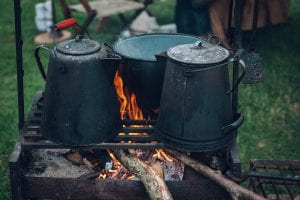
What food related events did your ancestors experience during their lifetimes ie famine, new settlers, war rations? How did these events affect their lives?
The Potato Famine in Ireland caused my ancestors to emigrate to NSW.
I had paternal ancestors who left Ireland during the potato famine and went to Glasgow to work in the coal mines. I wish I knew where in Ireland they were from
My mother was a child during WW2 and she told me how they had ration cards and her lunch was dripping and bread. She reminded me of that whenever I didn’t like eating something so it stayed with her
My grandfather wasn’t allowed to go to war (WW2) as he had to keep the Brisbane water supply going. He used to come home with US soldiers and my grandmother had to make the rationed food go around. She did so graciously though
Gosh well I know that both my parents went through rationing in WW2. My mother says she will always remember the excitement of seeing chocolate wrapped in foil after it was all over. All foil was previously donated to the war effort for munitions I think.
My husband’s grandparents hoarded tea and sugar during WW2 as much as they could and my husband continues the tea hoarding tradition to this day !
My parents went through rationing during WWII, and sent food parcels to the UK. I got some books and toys when I was born. No food was wasted in my mother’s home. I still have that attitude.
Probably the most significant event that affected a lot of my ancestors was the potato blight in Ireland, prompting mass migration. My ancestors from Munster all came to NZ, while others moved to England and Scotland.
Irish potato famine (likely); war rations (definitely). One uncle was a cook during WWII when he was very young. There were several agricultural labourers/farmers among my ancestors and their families.
My paternal grandfather fetched firewood for the local baker during the depression as ‘payment’ for bread.
Great book about the meat industry in NZ, primarily about Borthwicks, written by Peter Norman, called The Meat in the Sandwich. Some good anecdotes about my ggrandfather in there too.
Mum never cooked brains nor tripe – probably a hangover from the Depression and WW2 coupon years plus she was raised in a single parent family when her father deserted them from 1938-1939 – so things were very tight
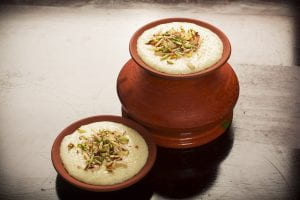
Share your food related memories of your own past ie birthdays, family dinners, school fetes. What food evoke strong memories of the past for you?
Cooking wasn’t a strength for my mother. Her limited repertoire included meat and 3 veg, crumbed cutlets, corned beef, lasagne and packet cakes
Bread and dripping was not unusual in our house after we got home from school. The dripping had the taste of the previous roast dinner.
So many memories! My mother’s chocolate cake on birthdays that tasted like no other – a very rich cream or ganache filling from memory. My mother once buying such a big turkey for Xmas from DJs Elizabeth Street that it didn’t fit in the oven.
School fetes – toffee apples and toffee in cupcake papers!
My mother could also manage toffees and coconut for the fetes,
We had Christmas every year at my grandparents house. My grandmother would kill the chook on Christmas Eve. I loved the chooks so worried about the chook that was served on Christmas Day.
I have such fond memories of my Irish grandmother’s cooking. Her Irish Bap, Irish stew, caramel Custard, home made ice cream and Rosella Jams were my favourites
So many great memories! My mother makes wonderful desserts (pavlova, cheesecakes, sweet pies, cakes, biscuits, slices, puddings), roast meals, lasagna, spaghetti, and many others. She taught me how to cook when I was 7, and I’ve enjoyed it ever since.
My paternal grandmother’s roast chook cooked in the Sunbeam counter top electric frypan was to die for.
Remember going to Nana’s and she always had sugared almonds – pale pink and white I think – in a little jar, like the ones that used to be found in wedding favours
My mother always made wonderful double tier sponge cakes 🍰 for birthdays, filled with fresh cream (from our cows) and homemade jam. Sometimes we had bought lemonade too that was a real treat.
Mum was a great cook, yet we always had meat and three veges for evening meals. Mum also did lots of cooking at Girl Guide camps and catering for events with her sister and cousin quite often
We had meat and three veg too for dinners. I was always amazed when my mum cooked for friends at dinner parties – she really leveled up! LOL Obviously fancy fare was wasted on us kids.
Big fat cream buns. I think that is my favourite childhood memory. The baker delivered and we would get a cream bun as a treat
So many memories connected to food, and I’ve tried to pass on family food traditions to my kids. But have also created our own too – we make a gingerbread house every year for Christmas and they still love decorating it, even in their teens!
I have a book called British Food: An Extraordinary Thousand Years of History. I hvn’t read it yet but look forward to it in the new year. Looks an interesting read, and I expect will give a better idea of the food our ancestors ate
Happy memories of my parents discovering delicatessens in the 70s – trying black bread, salami, cheeses, avocadoes…we had what we called “peasant lunches” on Saturdays and loved them. A bit like an antipasto. Lots of fun.
Remember taking 25c for school lunch order on Fridays as a treat. Was able to buy a pie, coffee scroll and drink with that amount
Tuckshop! sausage rolls for morning tea on a cold Canberra morning were always very welcome. Space food sticks in the early 70s were very hip. Paddlepops for 2cents.
My mother made fudge & fudge cake for every celebration – sickly sweet. I haven’t eaten them since I left home. She had a very sweet tooth, lived to 92. For Xmas it was log cabin roll & fruit cake. When we visited her, she would make fudge cake
Boarding school food horrors – sinker, i.e. afternoon tea cake, fried fritz (a South Australian thing), boiled cabbage…..
I know what you mean but the chocolate slice at afternoon tea at our boarding school was to die for. I have yet to find the recipe. It was sooooooo good.
Family dinners were basic food – stews, casseroles, meat loaf, roasts, etc with vegetables, many of which came from the garden. That’s what I still eat a lot of. My father liked milk puddings. I did the baking – biscuits and loaves.
Food brings back so many memories. Mum’s roast beef. She was ahead of her time – went for low fat meals. I remember she used to ask the butcher to cut off much of the fat. He moaned as it reduced the weight so she said weigh it, price it, then cut it off.
Making boiled fruit cake with my GM. My GF breaking his false teeth on a bacon rib, him making me champ as a “starter” (potato mashed with butter, salt, white pepper) when we were hungry waiting for dinner. Peas like bullets after I went walkabout aged 3 😮
Our neighbours had hens. Lots of eggs though I avoided slaughter time. Chicken was expensive in the 1960s. I often asked for chicken for special meals like birthdays. Food choices are different today.
We had meat & 3 until Mum discovered Asian cooking. We had so many spicy meals we got excited when meat & 3 was back on the menu 😆
#ANZAncestryTime A4 this recipe complete with picture was handed down from my mother from one of her friends. I love it. Unfortunately my family like cold ham for Xmas 🙁 pic.twitter.com/zPgMwM9nkv
— alex daw (@luvviealex) December 14, 2021
Are there any foods or recipes that have been passed down in your family? Do they reflect your heritage? Share your favourite Christmas foods and recipes.
Definitely Scottish Shortbread from Mr @geniaus forebear.
My grandmother’s home made ice cream, Irish bap and plum pudding are still a favourite in my family
So did I until I had to give up milk 30 years ago. It’s not the same with soy or rice milk. Bread and butter pudding used up old bread. Crumbles and sponges. 1st husband liked choc fudge pudding
Oh yum! You have reminded me of my mother’s rice pudding Alex. I could never make it taste as good as she did
What I have now is rice flakes cooked for a few minutes in rice milk, served with fruit (at present strawberries or raspberries from my garden) and yoghurt.
Rarely had rice pudding. Baked in the oven, short grain rice, can of nestles sweetened condensed milk. Nutmeg sprinkled on top. I always thought it was a waste of good condensed milk & hated the skin on the top. Mum was into fresh fruit so we had lots available.
I have cooked the mince pies and christmas cake. Shortbread is next with my nifty new cookie cutter in the shape of a Xmas tree together with my Gnome for the holidays spatula from TK Maxx.
I’ve inherited a couple of my Nanna’s recipe books, via my mum, and it contains a few recipes written on loose scraps of paper, including one of mine from school! #ANZAncestryTime pic.twitter.com/56PGI2cRCx
— Maggie Gaffney (@iwikiwichick) December 14, 2021
Morning/Evening #ANZAncestryTime just popping in to say hi very quickly. Looking forward to reading about those family food memories. I remember my grandmother talking about using every part of the xmas bird, even its feet, to feed her hungry horde
Not a scrap Maggie! The same woman had been housekeeper for an English doctor and his wife. She was a fantastic cook – her recipe book fell apart eventually.
I never had soggy boiled cabbage. Mum put ours on when the roast meat was out finished and being carved. I still hate the thick white stems part as they sometimes they were nearly raw. When I went to university and met institution food it was frightening.
My mother loved to experiment – one of her go to cookbooks was Aerophos – though hers were probably late 1950’s
Aerophos is the best!!! We have that here at home. I’m pretty sure it’s what I use for the Christmas cake and puddings although I deviated this year to Nursing Mothers cookbook.
I just love old recipe books and that’s my go to section now when I go to Lifeline book sales. So many hilarious ones put out by fridge companies or canning companies – how many recipes can you collect for tinned pineapple or gelatine !!
I inherited some of my mother’s and my aunt’s by marriage. Some have gone off to collections. I still have some to sort through as they are not dated and no use to my researcher of food friend.
Same for my daughter – that and Commonsense cookbook but I don’t think my daughter appreciates them 🙁 probably too old-fashioned and very unhealthy.
Here’s last Christmas ham baked by hubby, and Christmas cake me-made #ANZAncestryTime Did Mum’s recipes A-Z a couple of years ago
My mother always made a delicious boiled fruit cake, a weekly staple!
My cousin always made black bun for Hogmanay and my brother has her recipe. That and shortbread. Neither can I eat
I have a lovely Christmas pudding recipe from an Irish friend’s grandmother. It has Guinness and whiskey in it, so I enjoy making it as much as I enjoy eating it!
No one mentioned the sixpences in the Christmas pudding #ANZAncestryTime We looked forward to that and ate so much pudding hoping to get a coin😀
Thanks for the tweet on sixpences – I’ve just ordered sixpences on ebay for next year’s Christmas Puddings
Mum cooked fabulous pikelets in an Electric counter top frypan
I loved mums meatloaf and got her to write the recipe out for me to use.
I love traditional Christmas pudding with warm custard and vanilla ice cream. I also love chocolate coated almonds, salted cashews, fresh cherries, seafood, and roasts (though these days, I mostly eat vegetarian!)
I have a little handed-down notebook with recipes (including for household products) but I’m not sure who it is handed down from! Currently trying to decipher handwriting, and might try making the more palatable-sounding dishes.
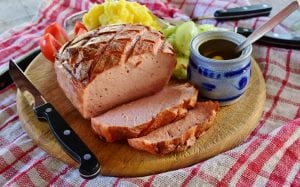
Blog posts:
Jill: Frank Duncan and his food van, Shortbread recipe,
Alex: Newcastle bakers, Daw and Stack, Jones and Taylor,
Sharn: Family recipes,
Carmel: A-Z recipes,
Twitterchat: November 2020 chat about food
Readers: What are your memories of great food that has been passed down in your family?
